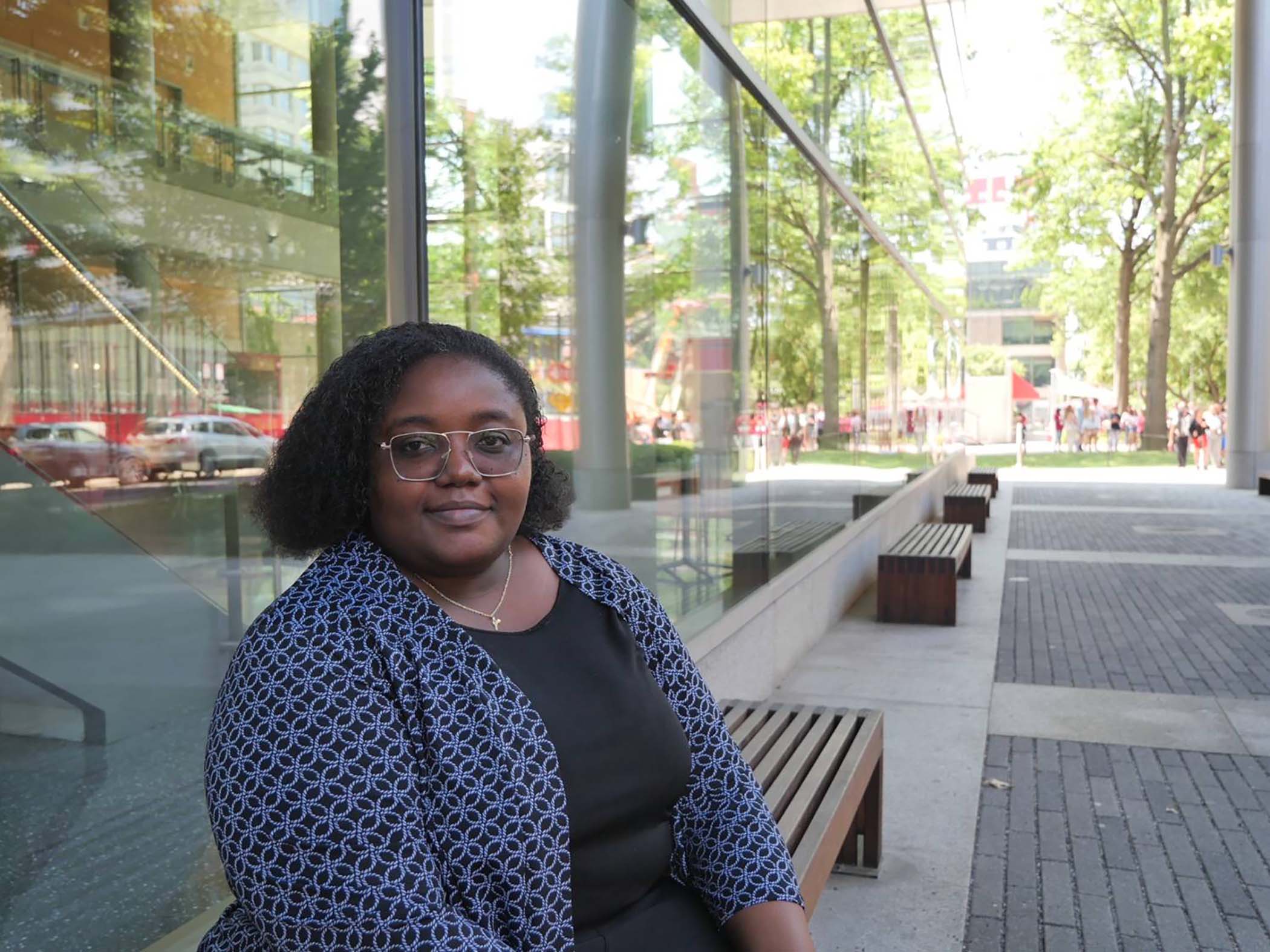Assistant Professor Samira Abdulai-Saiku is a new faculty member in the Department of Biology. A neuroscientist with an interest in sex differences and behavior, Abdulai-Saiku earned her doctorate in biological sciences at Nanyang Technological University in Singapore. Before joining Temple, she was a postdoctoral scholar in the Neurology Department at the University of California, San Francisco.
At the heart of your research, what is the BIG question you are trying to answer?
My work focuses on dissecting how sex chromosomes influence cognitive aging.
How do you go about trying to find those answers?
My approach involves the use of cell culture methods, animal behavior experiments, and integrated omics approaches to identify how sex chromosomes contribute to cognitive aging.
What recent breakthrough or discovery in your field has inspired or influenced your own research agenda?
The recent improvements in multi-omics analysis have improved our ability to understand gene expression and regulation in a more precise manner and this has been groundbreaking for my field.
How do you plan to involve students in your research projects, and what opportunities will you offer for their active participation?
My research program has a lot of opportunity for students to learn techniques such as primary cell cultures, animal behavior experiments, as well as sample prep and analyses of omics experiment and I look forward to having both undergraduate and graduate students to my research program.
Are there specific faculty collaborations or interdisciplinary projects you're excited to explore here at CST?
My work involves a lot of omics experiments so I am very excited to collaborate with faculty with bioinformatics experience both in the design and analysis to ensure we are able to maximize the information from each omics run.
In what ways do you hope your research will contribute to society at large?
In the last few years, there has been a significant emphasis on extending lifespan and a lot of work has been focused on achieving this. However, I believe we should not just focus on living longer but on also living well in our old age. My hope is that the data we generate will lead to new therapies that extend the period of cognitive resilience and/ or slow down cognitive decline in aging.
Can you share the journey that brought you to Temple University, and what aspects of the university's culture and mission attracted you to join our community?
During my faculty search and interview process, Temple’s commitment to improving access to research for underrepresented minorities was a big plus for me. Coupled with the very supportive scientific environment and the kindness of the faculty, staff and students I got to meet during my interview made me very excited to join Temple University.
What inspired or motivated you to pursue a career in science?
I have always been fascinated about how things work. Somewhere along the line, I became very interested in biological differences between males and females, beyond size and strength. I am fascinated by how and why in some situations, males and females respond differently to the same stimuli.

